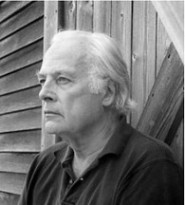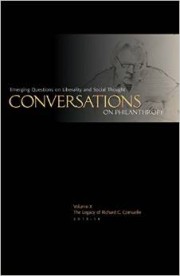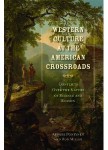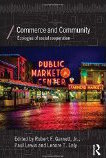Midwestern Liberal: A Smithian “Reclaiming of the American Dream”
Introduction
At my first Philanthropic Enterprise colloquium in 2004, we explored the work of economist Kenneth Boulding. Lenore Ealy also invited us to read (if we hadn’t already) Richard Cornuelle’s Reclaiming the American Dream. The conversation never put Boulding and Cornuelle side by side, yet I was struck by several similarities: (1) the nature and timing of their respective efforts to integrate benefaction (what Cornuelle called the service motive) into economic theory (Boulding 1962, 1965; Cornuelle 1993 [1965]); (2) their tripartite conceptions of modern society: Boulding’s exchange, threat, and integration systems (1963) and Cornuelle’s commercial, governmental, and independent sectors (1993 [1965]); and (3) their shared desire to “find an alternative path to the good society other than those of the doctrinaire conservatives or the dogmatic liberals of the Cold War era” (Ealy 2002, 2; see also Cornuelle 1993 [1965], 3-19; Boulding 1981, 112).
As I revisit Reclaiming today, I am again struck by its parallels to Boulding’s work but even more by its resonance with the moral philosophy of Adam Smith. Boulding was an avowed Smithian (Boulding 1957, 1968, 1969, 1971). His rich vision of human action and social cooperation drew jointly from the Wealth of Nations (1976 [1776]) and The Theory of Moral Sentiments (2009 [1790]) long before it was fashionable to do so. Cornuelle’s links to Smith, by contrast, are palpable though inchoate. Cornuelle never cites Smith’s Theory of Moral Sentiments, for example. Yet Cornuelle’s 1993 Afterword frames Reclaiming as an attempt to establish “the rationality and moral legitimacy of . . . [the] voluntary social process” as Smith’s Wealth of Nations had done for the market process (198), and his 1965 edition contains a memorable rebuke of Smith’s “too-fervent disciples” for assuming that “the invisible hand can do all of society’s work” (48). The latter statement ascribes to Smith a broad view of voluntary cooperation, beyond ”commerce only,” yet Cornuelle provides no rationale for this interpretation, nor any clues as to how Smith’s ideas may have shaped Cornuelle’s vision of the good society.
To probe the Smithian texture of Cornuelle’s thought, I explore here a series of Smith-like concepts and themes in Reclaiming the American Dream. My motivating question is not historical or biographical. I am not asking, “Did Smith’s concept of X lead to Cornuelle’s concept of Y?” or “In his own mind, was Cornuelle more Smithian than Misesian?” Instead, I ask, “Where along the spectrum of classical liberal thinking today do Cornuelle’s ideas have the greatest purchase?” This approach derives from Boulding’s historiographical concept of the extended present, set forth in his magnificent essay “After Samuelson, Who Needs Adam Smith?” (1971). Boulding argues that Adam Smith’s writings are part of the “extended present” of modern economics—living texts still capable of advancing the frontiers of contemporary thought. Richard Cornuelle’s place in the extended present of modern liberal thought is richly documented by the contributions to the present volume. By reading Reclaiming through a Smithian lens, I aim to lend credence to my sense that Cornuelle’s maverick brand of anarcho-communitarianism is more congenial to the recent works of James Buchanan (2005) and Deirdre McCloskey (2006)—two Midwestern liberals—than to the Hayekian or Misesian branches of Austrian economics with which his work is commonly identified.1 In the course of defending this unorthodox claim, I hope to illuminate the breadth of Cornuelle’s legacy in liberal social thought.
The Midwestern character of Cornuelle’s approach is everywhere in Reclaiming: in its “counter-political” posture (1993 [1965], 178), its alternately pragmatic and prophetic tones, and in the catholic tenor of its liberalism. Unlike his teacher, Ludwig von Mises, and unlike the Friedrich Hayek of the early Mont Pèlerin period, Cornuelle did not cast himself as an intellectual leader or ideological warrior. He had little appetite for movement politics, especially after his frustrated encounter with the Nixon administration in the 1960s (1993 [1965], 194-97). His counter-political voice is audible in the book’s title and narrative—a quest to reclaim not the anarcho-libertarian dream, or even the classical liberal dream, but the American dream—and in his steadfast attention to the problems and possibilities of ordinary citizens.
As a native Hoosier myself, I can attest that nothing is more Midwestern (or Hoosier-like) than the desire to prove oneself through competition. So perhaps the most telling sign of Cornuelle’s Midwestern-ness is the modest yet courageous character of his reclaiming. He demands nothing more for the independent sector than the opportunity to compete on equal terms with its historic rival: government. He does not blame the current weakness of the independent sector on socialist plots or propaganda. He accepts that a weak independent sector is an uncompetitive sector, and that persuasion—winning citizens’ attention, confidence, and imaginative energies—is the only secure path to competitive success in the public arena.




